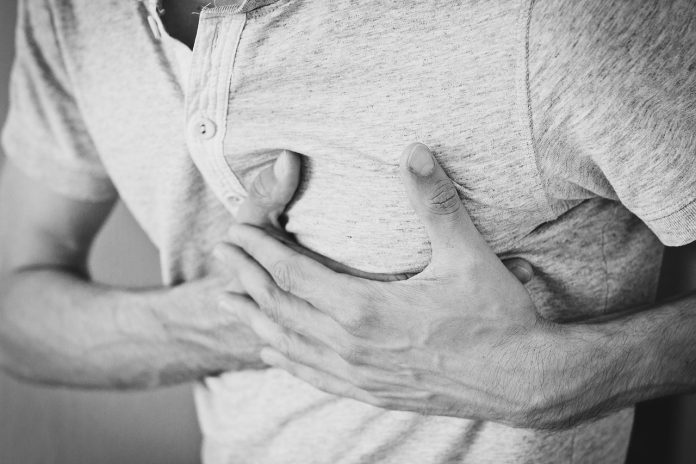By Bipinpreet S. Nagra, MD
Did you know that heart disease is the leading cause of death for both men and women in the United States each year?
In fact, according to the Centers for Disease Control and Prevention (CDC), nearly 1 in every 5 deaths are caused by heart disease.
Many people may not realize they have heart disease until a heart attack occurs. However, by recognizing the risk factors and warning signs of heart disease, you can work with your doctor to protect your heart health and improve outcomes.
Risk Factors
- High blood pressure. Often called the “silent killer” because it has no symptoms, high
blood pressure is one of the leading risk factors for heart disease. Controlling your blood
pressure through lifestyle changes or medication, can help reduce your risk for heart
disease and heart attack. - High cholesterol. High cholesterol can lead to narrowing of the arteries and cause a
decrease in blood flow to the heart, brain, kidneys and other parts of the body. Like high
blood pressure, high cholesterol usually has no signs or symptoms. A simple blood test can measure your cholesterol levels. If you have high cholesterol, your doctor may
prescribe medication to help keep it in check. - Diabetes. Diabetes is a chronic medical condition that causes high blood sugar levels.
Over time, uncontrolled diabetes can damage blood vessels and the nerves that control
your heart. As the CDC notes, the risk for heart disease for adults with diabetes is two
times higher for adults who do not have diabetes.
Warning Signs
- Chest discomfort. One of the most common early warning signs of heart disease is chest
discomfort. This discomfort may manifest as a feeling of pressure, squeezing, fullness, or pain in the chest. It may last for a few minutes or come and go intermittently. If you
experience any unusual chest discomfort, especially if it occurs during physical activity
or emotional stress, it’s crucial to seek prompt medical attention. - Shortness of breath. Unexplained shortness of breath, especially during mild activities or
at rest, can be an early sign of heart disease. When the heart’s ability to pump blood
efficiently is compromised, it can lead to a buildup of fluid in the lungs, resulting in breathlessness. If you find yourself becoming unusually breathless without any apparent reason, consult a healthcare professional. - Fatigue and weakness. Persistent fatigue and weakness can indicate an underlying heart issue. If you feel excessively tired even after getting adequate rest or find it challenging to perform everyday tasks, it’s essential to consider the possibility of heart disease.
- Pain in the neck, jaw, throat, upper abdomen, or back. In some cases, heart disease can cause pain or discomfort in areas other than the chest. Pain in the neck, jaw, throat, upper abdomen, or back should be evaluated, especially if it occurs alongside other symptoms like shortness of breath or fatigue.
- Irregular heartbeat. Palpitations or sensations of a fluttering, racing, or irregular heartbeat should not be ignored. These sensations may occur when the heart’s electrical system is disrupted, leading to arrhythmias. While not all palpitations are indicative of heart disease, it’s important to get them checked by a healthcare provider.
- Dizziness and fainting. Heart disease can sometimes cause inadequate blood flow to the brain, leading to dizziness or fainting spells. If you experience unexplained episodes of dizziness or fainting, seek medical attention to rule out any heart-related causes.
- Swelling in legs, ankles, and feet. Edema, or swelling in the lower extremities, can be a sign of heart disease. When the heart struggles to pump blood effectively, fluid can accumulate in the legs, ankles, and feet. Persistent swelling, especially if it’s accompanied by other symptoms, could be a sign of heart disease.
- Persistent cough. A chronic cough, particularly one that produces pink or white mucus, can indicate heart failure. The cough occurs due to fluid retention in the lungs, which can be a sign of a weakened heart.
It is important to note that not everyone with heart disease experiences all the warning signs, and some individuals may not have any noticeable symptoms at all. Regular health check-ups are key to early detection.
When to Call 9-1-1
Sometimes people don’t know they have heart disease until they have a heart attack. If you have signs of a heart attack, it is critical that you call 9-1-1 and seek emergency medical care.
These signs include:
- Chest discomfort. Most heart attacks involve discomfort in the center of the chest that
lasts more than a few minutes, or that goes away and comes back. It can feel like
uncomfortable pressure, squeezing, fullness or pain. - Discomfort in other areas of the upper body. Symptoms can include pain or discomfort in one or both arms, the back, neck, jaw or stomach.
- Shortness of breath. This may occur with or without chest discomfort.
- Other signs of a heart attack may include breaking out in a cold sweat, nausea or lightheadedness.
Listen to Your Body
Heart disease is often manageable with timely medical intervention and lifestyle modifications, such as adopting a heart-healthy diet, exercising regularly, avoiding smoking, and managing stress.
By listening to your body, being mindful of the warning signs of heart disease, and taking charge of your heart health you will not only improve your quality of life but may also add years to it.
To find a physician affiliated with Penn Medicine Princeton Health call (888) 742-7496 or visit www.princetonhcs.org.
Bipinpreet S. Nagra, MD, is board certified in cardiovascular disease and is a member of the
medical staff at Penn Medicine Princeton Health.


